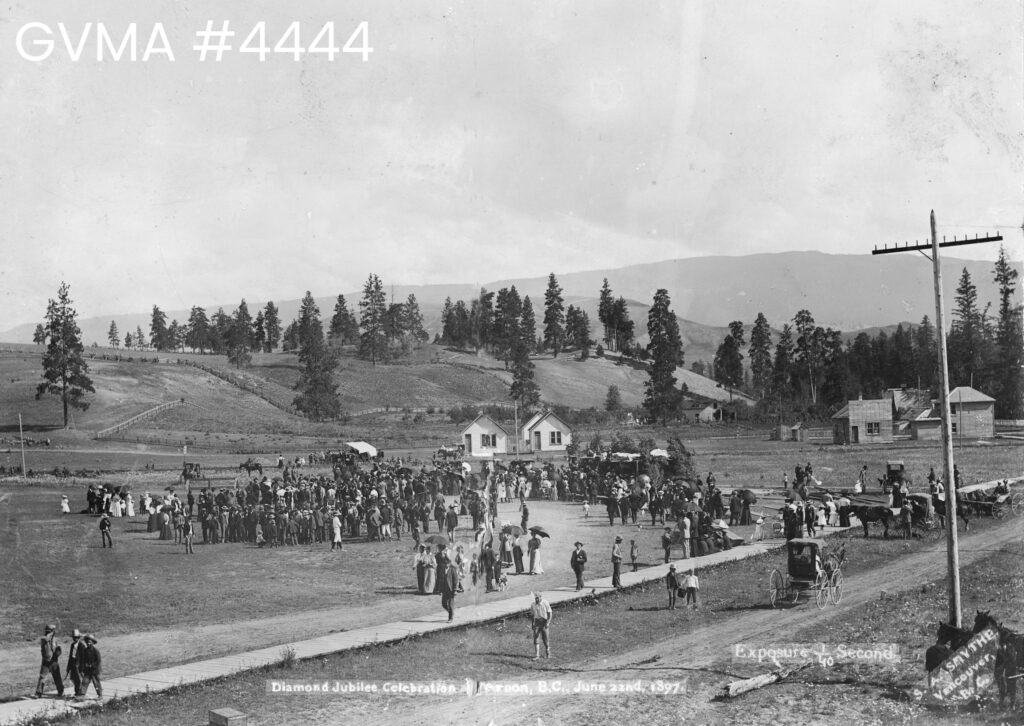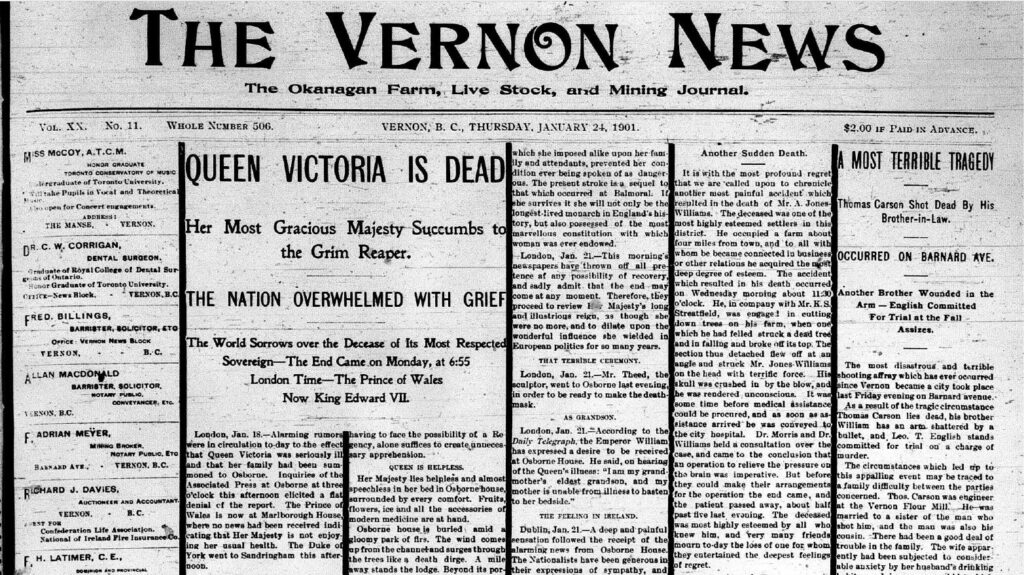
Although many of us now think of the May Long Weekend as the beginning of camping season in B.C., the history of Victoria Day is a bit more complicated.
In 1845, the Legislative Assembly of the Province of Canada decided to officially recognize the birthday of Queen Victoria on May 24 with public celebrations. But it wasn’t until 1901, following the Queen’s death, that May 24 became officially known as “Victoria Day” in her memory.
At the turn of the 20th century, the settler population in Vernon eagerly celebrated Queen Victoria’s birthday, as well as her reign in general.
On June 22, 1897, Vernon celebrated the Diamond Jubilee with a series of sporting events, including baseball, lacrosse, trap shootings, and tug-of-war. Other outlying communities, including Enderby, came to compete in the day’s activities, and it is noted that Vernon won all events except tug-of-war.
May Long Weekends in Vernon were also marked with sporting events and special activities in celebration of the Queen’s birthday. On May 24, 1895, a cricket match was held between Kelowna and Vernon, with the SS Fairview offering special trips between the two cities for individuals who wished to attend.
In 1900, Enderby hosted Vernon and other nearby communities for a series of foot, horse, and canoe races. A football match was also held between the community of Lumby and employees of the Coldstream Ranch, followed by a grand ball in Morand’s Hall.

Queen Victoria’s passing in 1901 was announced in large font on the front page of the January 24th edition of the Vernon News, as the City mourned the loss of its “Most Respected Sovereign.” Later that year, Vernon officially celebrated “Victoria Day” for the first time, with—you guessed it—sporting events, including three-legged and ladies races.
“Queen Victoria is Dead: Her Most Gracious Majesty Succumbs to the Grim Reaper. The Nation Overwhelmed with Grief. The World Sorrows over the Decease of Its Most Respected Sovereign-The End Came on Monday, at 6:55 London Time-The Prince of Wales Now King Edwards VII.”


